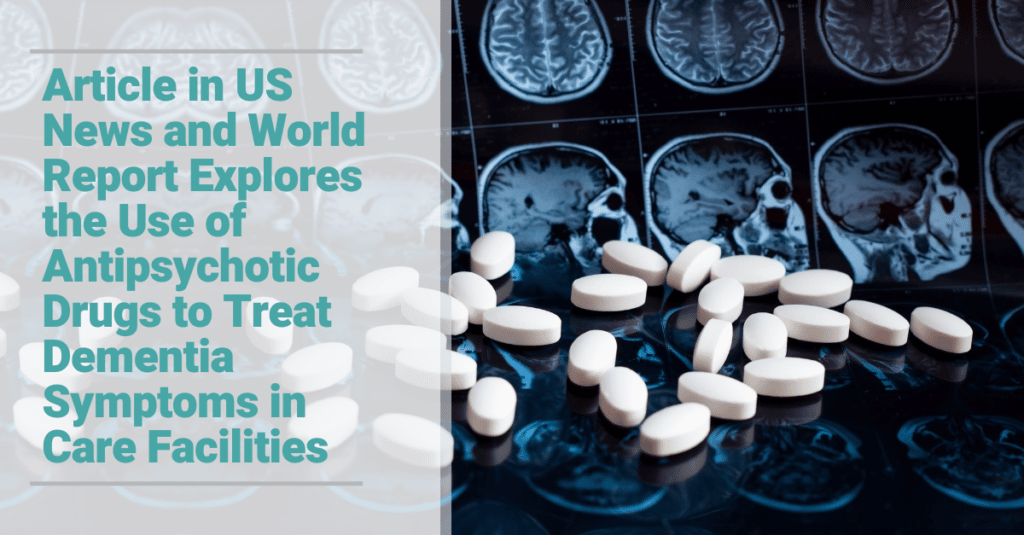U.S. News & World Report Explores Antipsychotic Drug Use in Dementia Care

A recent article in US News & World Report explores the use of antipsychotic drugs to treat dementia symptoms in long-term care facilities, including the potential overuse of the drugs to treat conditions they were not approved for.
Antipsychotic medications such as Haldol are typically prescribed to treat psychosis related to an underlying condition such as schizophrenia. These drugs, however, are not approved for the treatment of FTD or other dementias. Additionally, they carry what is known as a “black box warning,” as they can contribute to death from falls, infections, pneumonia, or other conditions in people with forms of dementia.
In the article, U.S. News contributor Elaine K. Howley highlights a report by the New York Times that found that antipsychotics may be prescribed after a misdiagnosis of schizophrenia, and that in some cases, misdiagnosis may be intentional to bypass required reporting of antipsychotic use to Medicare. She also cites a report published in the journal Neurology and Therapy showing a potential relationship between facility understaffing and the over-prescription of antipsychotics in dementia care.
Antipsychotics may nevertheless be prescribed to treat severe behavioral changes in people with FTD, most notably aggression and agitation. U.S. News provides questions that care partners and family members can ask care facility staff if antipsychotics have been prescribed:
- Why is this medication being used? – What behaviors is the prescription trying to address? What conditions is it trying to treat?
- What is the expectation of this medication? – What are the benefits of using antipsychotics, and what is the desired result?
- What are the side effects of this medication? – What are the risks of this medication, and how will it interact with pre-existing conditions?
- What are the alternatives to this medication? – Are there non-medicinal interventions that can be used? Are there other medications that might be helpful?
- Is there something other than FTD that could be causing this behavior? – Is the incidental behavior in response to something like an illness or injury?
- Is there an environmental trigger? – Is it possible that certain things like the colors of someone’s room or the noise level of the facility are causing distress?
For a detailed guide on the proper use of medication to treat symptoms of FTD, read the Fall 2019 issue of Partners in FTD Care. The Managing FTD page has information on non-medicinal interventions for many symptoms of FTD, such as aggression and compulsive behaviors.
By Category
Our Newsletters
Stay Informed
Sign up now and stay on top of the latest with our newsletter, event alerts, and more…
